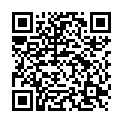|
|
|
| Module code: WIBASc155 |
|
|
2V+2U (4 hours per week) |
|
5 |
| Semester: 1 |
| Mandatory course: yes |
Language of instruction:
German |
Assessment:
Written exam
[updated 02.07.2019]
|
WIBASc155 (P450-0097) Industrial Engineering, Bachelor, ASPO 01.10.2013
, semester 1, mandatory course
|
60 class hours (= 45 clock hours) over a 15-week period.
The total student study time is 150 hours (equivalent to 5 ECTS credits).
There are therefore 105 hours available for class preparation and follow-up work and exam preparation.
|
Recommended prerequisites (modules):
None.
|
Recommended as prerequisite for:
WIBASc-525-625-Ing27 Project Work in the Wind Energy Lab
WIBASc-525-625-Ing8 Elements of Technical Products
WIBASc-525-625-Ing9 Introduction to Energy Technology
WIBASc245 Manufacturing Engineering
WIBASc345 Design Technology / CAD
WIBASc445 Electrical Engineering
[updated 09.10.2025]
|
Module coordinator:
Prof. Dr.-Ing. Dieter Arendes |
Lecturer:
Prof. Dr.-Ing. Dieter Arendes
Prof. Dr. Frank Ulrich Rückert
Torsten Schmidt
[updated 19.12.2019]
|
Learning outcomes:
After successfully completing this module students will:
_ have basic knowledge of materials engineering.
_ be able to describe typical methods of materials testing.
_ be able to explain the structure of important materials and estimate which properties result from this.
_ be familiar with typical engineering materials and their essential properties, especially steel, and can apply this knowledge in a technical discussion.
_ have an overview of the typical treatment and processing methods for materials and be able to evaluate them in terms of material properties and their integration in a process chain.
[updated 02.07.2019]
|
Module content:
_ Material properties and testing
_ Structure and properties of metals,
_ Alloys, especially iron-carbon alloys
_ Heat treatment of ferrous materials
_ Cast iron and steel (unalloyed/alloyed)
_ Introduction to non-ferrous metals
_ Introduction to Plastics and Composites
[updated 02.07.2019]
|
Teaching methods/Media:
Lecture with exercises, animations and demonstrations (tensile test).
Sample parts will be passed around during the course of the module.
Lecture notes as a collection of slides with questions and exercises.
[updated 02.07.2019]
|
Recommended or required reading:
_ Seidel, W. / Hahn, F.(besondere Empfehlung): Werkstofftechnik, 9. Auflage, Carl Hanser Verlag, 2012
_ Hornbogen, E. / Eggeler, G./Werner, E.: Werkstoffe, 10. Auflage, Springer Verlag, 2012
_ Ilschner, B. / Singer, R. F.: Werkstoffwissenschaften und Fertigungstechnik, 5. Auflage, Springer Verlag, 2010
_ Worch, H. / Pompe, W./Schatt, W.: Werkstoffwissenschaft, 10. Auflage, Wiley-VCH Verlag, 2011
_ Ruge, J. / Wohlfahrt, H.: Technologie der Werkstoffe, Vieweg+Teubner Verlag; 8. Auflage, 2007
_ Weißbach, W.: Werkstoffkunde _ Strukturen, Eigen-schaften, Prüfung, Vieweg+Teubner Verlag; 18. Auflage, 2012
[updated 02.07.2019]
|

